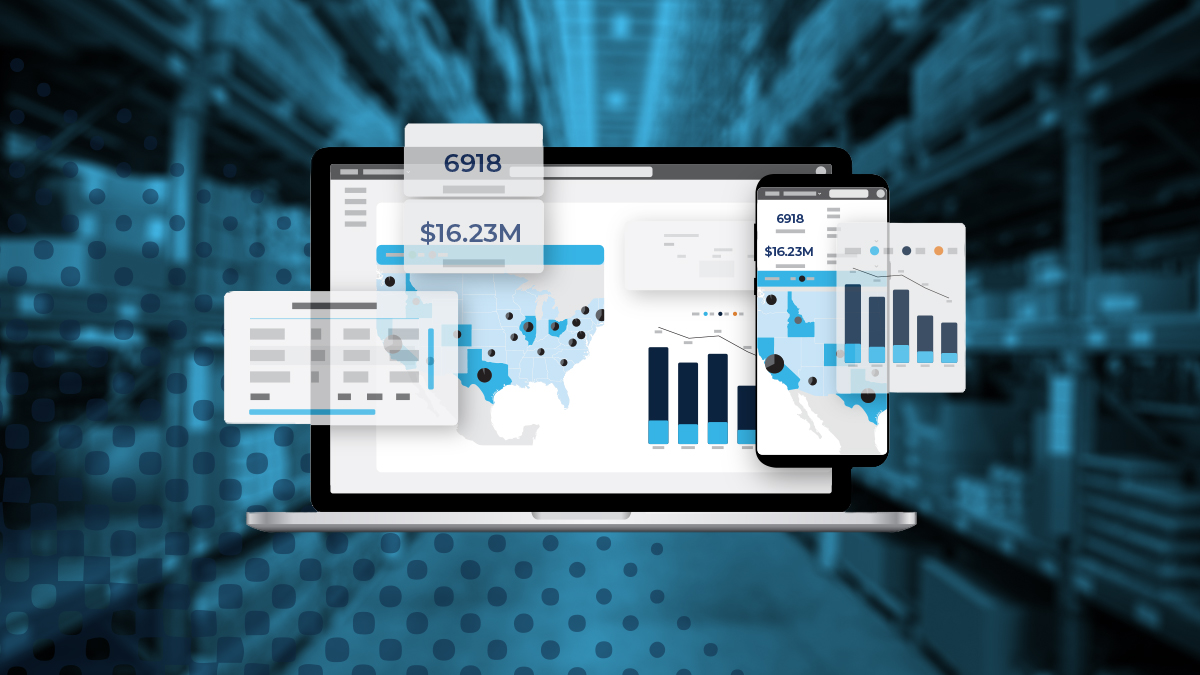
3 Keys to an integrated, efficient, and reliable refrigerated shipping network.
By Troy Cook – Vice President of Sales and Marketing, Dynamic Logistix
This story originally appeared in the Kansas City Business Journal.
Few industries rival the rapid pace and constant evolution of logistics. Where real-time visibility is the expectation, data is sought to deliver guidelines for new shipping strategies and cost savings. From coordinating a vast transportation network to managing inventory flows and meeting consumer demands, adaptability, innovation, and strategic foresight are not just advantageous traits but fundamental requirements for success.
Today, businesses are often faced with the choice between implementing a Full-Service transportation management system (TMS) or using standard freight brokerage services. Each option comes with its own set of pros and cons, catering to the different needs and preferences of each company, like the complexity of operations, shipping volume, customer expectations, inventory management, and more. Let’s take a look at each solution.
Full-Service Transportation Management Systems (TMS)
I’d compare a Full-Service Transportation Management System (TMS) to having an automated, digital captain at the helm of your entire freight operation. TMS is a comprehensive software solution designed to streamline the entire transportation process, from planning and execution to tracking and optimization.
By automating manual processes, a TMS reduces human error and saves valuable time, leading to operation-wide efficiencies every single day. For shippers who have an extensive global or national network and a high volume of shipments, these efficiencies lead to significant cost-savings by optimizing routes, consolidating shipments, and minimizing empty miles. According to Transparency Market Research, the market for TMS is growing at more than 13 percent a year and will become a $30 billion market by 2025. Those using a TMS can save approximately 8.5 percent on their freight costs, according to a report from ARC Advisory Group. A Gartner survey found that TMS users typically expect between 5 percent and 15 percent yearly savings.
Once your shipments have been optimized, planned, and shipped, a full-service, managed TMS typically provides a team to handle the day-to-day work that comes with it. Form tracking, to appointment scheduling, and collecting the necessary documents that are needed before payment. And since it is all centralized, shippers can gain insights into all aspects of their network in one location.
What about your customers? Do they demand to know exactly where their shipments are at all times? One of the biggest advantages of TMS is its ability to provide real-time visibility and this transparency allows businesses to track their freight every step of the way, enabling proactive decision-making and enhancing customer service.
Shippers considering implementing a TMS need to be aware of the costs that come with initial implementation. Occasionally the upfront investment can be a surprise to some companies who may not consider the cost of licensing, training and integration with existing systems. For smaller businesses with limited budgets, this initial cost can be prohibitive.
Standard Freight Brokerage Services
Standard freight brokerage services offer a more traditional approach to freight management and have their own unique lists of benefits for shippers who are not yet ready or do not have the need to invest in a transportation management system.
Freight brokers have the flexibility to leverage their network of carriers to find the best shipping solution for each load which can be especially beneficial for businesses with fluctuating shipping needs or irregular freight volumes. For companies who may lack the capacity to develop beneficial carrier relationships, using a freight broker could be a significant benefit to your operations. Brokers are in the business of knowing exactly which carriers they can rely on to deliver a product safely and on time and which carriers to avoid (who likely have a poor scorecard and a poor reputation in the industry).
Additionally, brokerages typically come with a dedicated account manager who gives shippers personalized attention and support throughout the shipping process. Brokers can offer customized solutions tailored to the unique requirements of each customer, utilizing their industry expertise, helping businesses navigate complex logistics challenges, and ultimately, finding cost-effective transportation solutions.
Freight brokerage services are ideal for companies who are not looking for an end-to-end logistics platform but will benefit from innovative freight operations and affordable shipping solutions with no contracts required.
The decision between a managed TMS and standard freight brokerage services ultimately depends on your specific needs, priorities, and resources. TMS offers automation, efficiency, and visibility but requires upfront investment and ongoing maintenance. Freight brokerage services provide flexibility, visibility, expertise, and personalized support but may not provide the full-service solutions and robust reporting a TMS offers.
Troy Cook is the Vice President of Sales and Marketing at Dynamic Logistix.
Are you a shipper who could benefit from a full-service TMS or freight brokerage services that can save your company both time and money? Find out if partnering with Dynamic Logistix can help you navigate and maintain your position in the market.
Dynamic Logistix is a third-party provider of shipping and freight solutions that combines a world-class technology platform with stellar personal service. For more information, please visit our website.



